Why Batman Can’t Save Gotham
Fox’s Batman origin series, Gotham, has returned for its fifth and final season.
The show features a bevy of proto-villains from the future Dark Knight’s Rogues Gallery—Poison Ivy, the Joker, Penguin, the Riddler. And new this season, Bane. Over the course of five seasons, these villains have risen, fallen, and risen again, each time bringing a fresh round of scheming to the metropolis, hell-bent on either revenge, terror, seizing power—or all three.
Also rising is the not-yet-Batman, Bruce Wayne (played earnestly by David Mazouz). The favored son of Gotham’s elite has evolved from being preyed on and held hostage by bad guys to picking fights with villains far more savvy in the streetwise ways of darkness.
In its debut season, it appeared Gotham would tread familiar genre territory as a run-of-the-mill detective drama. But, a couple of episodes in, the series that was expected to be a crime procedural inspired by comic book events took a long look into the abyss of madness and never blinked.
Gotham: The sum of its people
Despite the colorful characters, their over-the-top schemes, and the hellscape the city has become, the real character of Gotham is shown by its ordinary inhabitants. Gotham is not a place, but a people. Like the destroyed Asgard (at the end of Thor: Ragnarok), Gotham is the sum of its citizens.
Pretend for a moment that Gotham is real. That Gotham is Dallas, Atlanta, or London. That Gotham is your town.
What group of people would tolerate the insanity that goes on in there? Gothamites voted a wanna-be crime lord (Oswald Cobblepot, a.k.a. Penguin) into the mayor’s office. They cower in fear and let themselves be beaten or bribed into submission by criminals and thugs. They abide by the “order” imposed by mob families as a fact of life, allowing their city to be divided up into territories controlled by crime lords.
Fear is the overwhelming emotion of Gotham. Fear permits the city’s shadows. As Scarecrow tells a certain police captain in the opening to the fifth season, “Why would I need light? Fear grows in darkness.” And, as Scripture says, “Fear hath torment” (1 John 4:18). The city’s tolerance for sin is the origin of its fear-driven nature. Fear drives even Gotham’s flamboyant criminals.
The whole city is wrapped up in a sense that, whatever has happened already, the worst is yet to come. And now that the worst has truly come—Gotham cut off from the outside world, running low on food, fuel, electricity, and sanity—the city’s inhabitants see no need to change their ways. With the exception of a few hundred civilians and a few faithful police officers, Gotham has become a divided wasteland—every faction fearing the others and every man for himself.
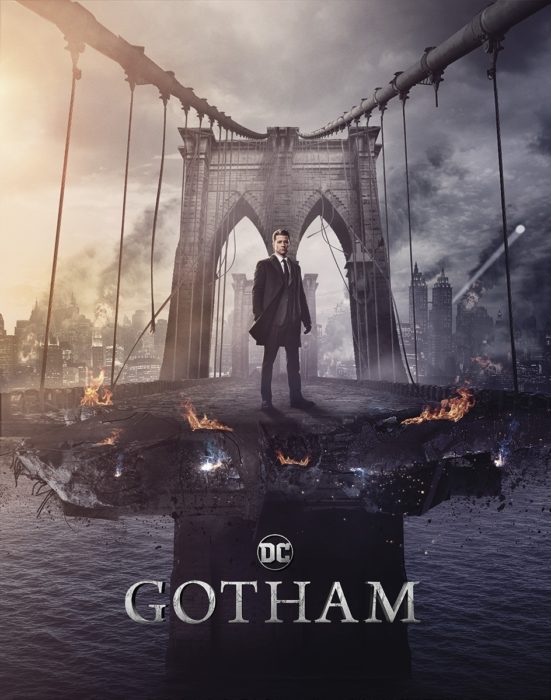
Enter: Gordon, knight of Gotham
Speaking of faithful police officers—Jim Gordon. He’s a knight in slightly shining armor who still believes Gotham can be saved. “No matter how dark the night might be,” he tells a young Bruce on the night his parents are murdered, “there is light.”
In the premiere episode of Gotham‘s final season, Bruce quotes that line back to the police captain. But it’s hard to see how either one of them still believe it.
Gordon came to Gotham as an idealistic cop who believed truth and justice would win the day. He cleaned up the Gotham Police Department, deposed a corrupt commissioner, and exposed a feckless mayor. But time and time again, Gordon found himself allying with the lesser of several evils in order to “save” the city. His own status as the city’s white knight was irreparably tarnished after word got out that he shot and killed Mayor Theo Galavan (albeit with much prodding from Penguin who convinced Gordon that Galavan was too well-connected and the city’s justice system too corrupt for Galavan to get the punishment he deserved).
Still, Gordon clings to a high ideal that some semblance of righteousness can be found.
A dark savior
For storytelling purposes, Gordon has to pretend he doesn’t know it, but the show makes no bones about Bruce/Batman being the only one who can eventually “save” Gotham. Repeatedly, the viewer (and Bruce) are told that he is the dark knight Gotham needs. He is the chosen one.
However, a troubling theme emerges. As Bruce is on his hero’s journey, he is told, first by Ra’s al Ghul and then by the proto-Joker twins, Jerome and Jeremiah Valeska, that he is “at war with his true nature.” That he should embrace the darkness inside him. That the only way to defeat darkness is to become the night.
While Bruce Wayne is painted with an even greater innocence than Jim Gordon starting out, the insistence that he must become “dark” in order to succeed in fighting Gotham’s criminals sets him up to be, like Gordon, a tarnished hero in the end.
Light in Gotham
The idea that darkness can drive out darkness is most annoying. Christ was accused of attempting it, and he pointed out its absurdity. When his detractors claimed, “He drives out demons by the ruler of demons!” (Matthew 9:34), Jesus replied, “If I drive out demons by the prince of demons, by whom do your people cast them out?” (12:27).
What Gotham needs is not a dark knight, not a brutal vigilante who rises from the muck of the city’s underworld dealing a savage hand. Such a creature can never inspire the perfect love that casts out fear and inspires hope among its citizens. The Bat only lends credence to the shadows, telling the people he swears to protect that the night is to be feared. That they best scurry home and leave the streets to the savages.
Gotham’s true salvation can only come from a hero who operates by an entirely different code. A hero who rises with light and hope, dispelling fear and darkness. To paraphrase Martin Luther King Jr., darkness cannot cast out darkness, fear cannot cast out fear. Only love can do that.
Gotham won’t teach that lesson. The show is already bound to a largely predetermined outcome. Gotham, the city, will always be a dark place with a lone dark knight battling the dark forces that seem to breed there. The city’s consistent gloom and its people’s persistent fear are a testament to Batman’s failure. Though he’s probably the hero Gotham deserves, he won’t ever be the savior Gotham needs.



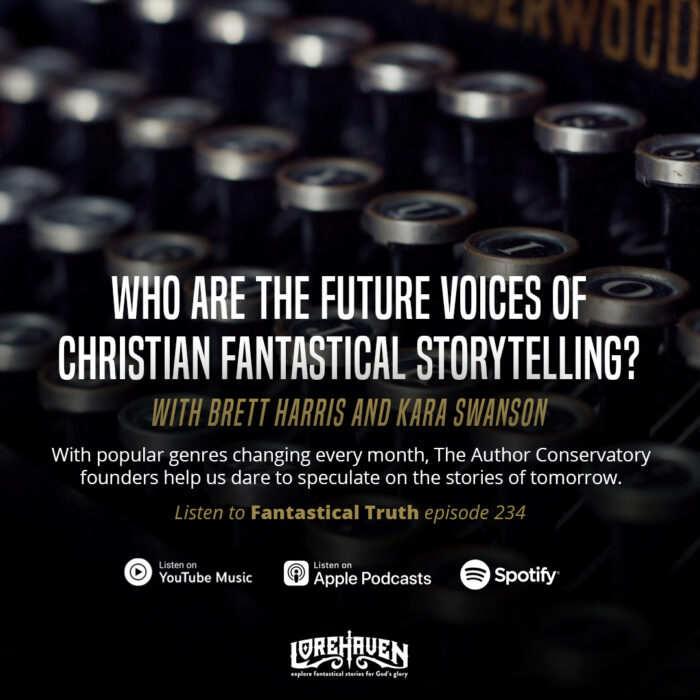








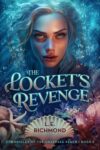
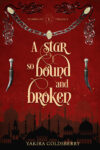
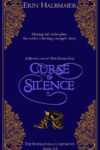




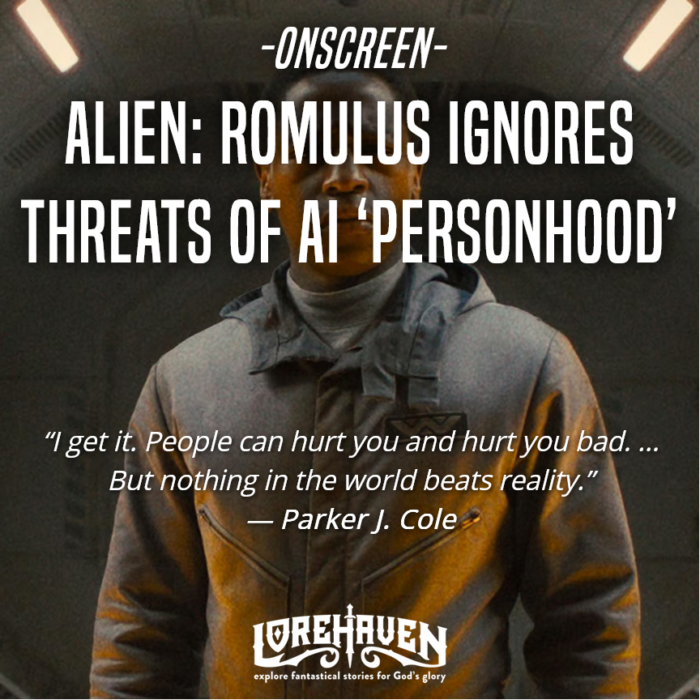

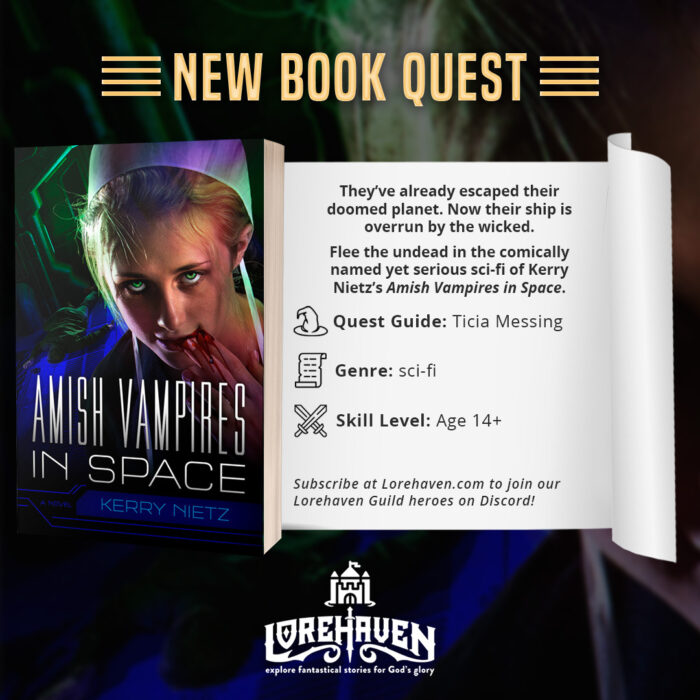











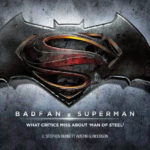






Another interesting place I’ve seen this theme is in Hakuoki Reimeiroku (the prequel/third season of Hakuoki) the chars of that show deal with a difficult commander (Serizawa) whose influence they need to accomplish their goal. Yet, Serizawa is also cruel and problematic, and sometimes when others around him protest, he will point out that they have gained little results up until now. He questions their resolve and says ‘You don’t even know how to play the villain, do you?’
Serizawa is a stark contrast to the weak main char, Ibuki, and the other characters begin to realize a lot of things because of Ibuki and Serizawa. One thing is that, even if they don’t want to replicate Serizawa’s behavior, not everyone is as good and noble as they are, and they have to have the resolve and power needed to deal with people like Serizawa. Sometimes that involves doing things they don’t like. There’s a lot to be gathered from this show, but one thing is that if we focus too much on being ‘nice’, or as stubborn as Ibuki started out, we will end up too weak to protect ourselves or others, which is reprehensible. But, if we go too much the other way, we become a huge problem, like Serizawa.
In one Batman movie, I actually felt frustrated with Batman’s refusal to kill Joker(during The Dark Knight I believe) A general avoidance of killing would be understandable and even important, but with Joker in that movie, it was probably wrong. Batman unnecessarily sacrificed lots of lives in order to uphold his own personal moral code of not killing anyone. In this particular situation, that probably wasn’t the right thing to do. Batman would have felt like killing was too dark, but in this one instance, refusing to permanently end Joker’s reign seems even darker.
When people say ‘You have to embrace your dark side’, the truth is probably more along the lines of things like’you have to be stronger,’ or ‘You can’t let people run all over you.’
Great commentary.
It reminds me of the fundamental lesson of the Lord of the Rings–like Sauron’s ring, evil cannot be used to fight evil other than temporarily. To break the cycle of evil requires something much more fundamental than lurking in the dark and punching bad guys in the face.